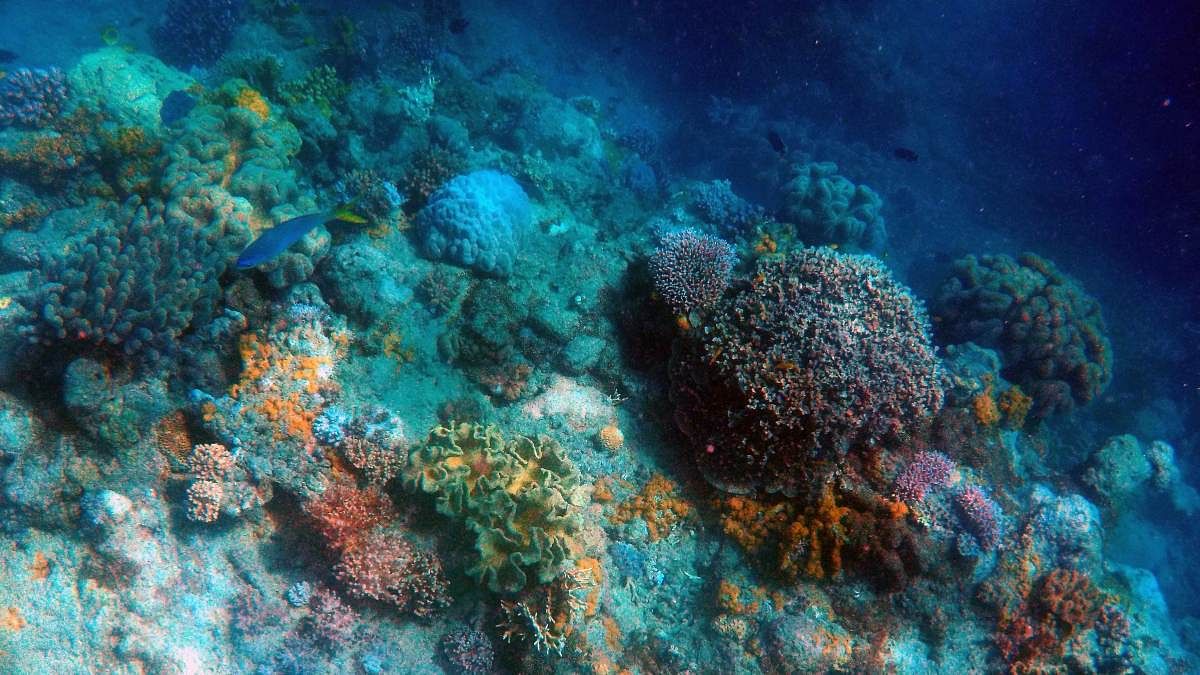
A significant proportion of Earth’s biodiversity, around one million species, resides in the ocean, with the majority still undiscovered in the deep sea.
The deep sea and its biodiversity play a key role in ecosystem services, such as climate regulation, fisheries production, and elemental cycling.
Deep-sea mining, which could seriously and irreversibly harm marine ecosystems and have long-lasting consequences for the health of the Earth, may be given the green light to begin in 2023.
“By Hercules! In the sea and in the ocean, vast as it is, there exists nothing that is unknown to us, and, a truly marvellous fact, it is with those things which nature has concealed in the deep that we are the best acquainted!” Pliny the Elder, 40 AD
Pliny then proceeded to list just 176 species. Two thousand years later, we’re only just beginning to realise his statement was not only incorrect, but it also echoed the contented ignorance of the time.
Estimates now suggest that a significant proportion of Earth’s biodiversity, around one million species, resides in the ocean, with the majority still undiscovered in the deep sea. Although we know more than we ever have about the deep sea, despite centuries of research, our knowledge of these mysterious depths remains scarce.
Time and time again, as we explore and study the deep sea, we are met by species, habitats, and ways of life that are beyond our imaginations. From hydrothermal vents gushing super hot black fluid to giant glass sponges thought to be thousands of years old, and animals that communicate via flashes, pulses, and glows.
The deep sea plays a vital role in Earth’s health
This richness and diversity of organisms in the deep sea support ecosystem processes necessary for the Earth’s natural systems to function. The deep ocean also constitutes more than 90% of all the living space on the planet and plays a key role in services such as climate regulation, fisheries production, and elemental cycling. It is an integral part of the culture and well-being of local communities and the seafloor forms part of the world’s Common Heritage, which belongs to everyone on the planet and everyone yet to come.
The more we, marine scientists, learn about the complexity and importance of life in the deep ocean, the more we realise the great peril it faces. Deep-sea ecosystems are under stress from a number of human stressors, including climate change, destructive bottom trawling and pollution. And new threats loom on the horizon.
Deep-sea mining, a new industry that may be given the green light to begin operating as early as 2023, will add to these stresses. It could result in the loss of deep-sea biodiversity and disruptions of ecosystem functioning and services that could last millennia or even be permanent.
The risks of deep-sea mining are not fully understood
To compound these concerns about the risks of deep-sea mining, a recent study has revealed just how little experts know about the parts of the planet already leased for mining exploration and how they might be affected by mining activities. In fact, 57.8% of the scientific categories assessed for regions with mining exploration areas were shown to have no or next to no scientific knowledge to enable evidence-based management. Only 1.1% had enough. Without environmental, biodiversity and ecological information, the potential risks of deep-sea mining to deep-ocean biodiversity, ecosystems and functioning, as well as human well-being, cannot be fully understood.
The United Nations Decade of Ocean Science for Sustainable Development, launched last year, provides an opportune period in which to collect more information about the species and ecosystems that could be affected by deep-sea mining – before not after this industry begins. As scientists, we deeply value evidence-based decision-making, especially in instances as consequential as a global decision to open an entirely new frontier of the ocean to large-scale industrial resource exploitation.
The sheer importance of the ocean to our planet and people, and the risk of large-scale and permanent loss of biodiversity, ecosystems, and functioning, necessitate a pause of all efforts to begin mining of the deep sea. Unlike Pliny the Elder, we must recognise that we are far from having all the answers about things concealed in the deep, and instead take intelligent precautions and accelerate independent research, so that we can gain a better understanding of what is truly at stake.
Douglas McCauley, Professor, University of California Santa Barbara; Member of Friends of Ocean Action; Director, Benioff Ocean Initiative
Diva Amon, Science Advisor, Benioff Ocean Initiative, University of California, Santa Barbara
Source: The Print

